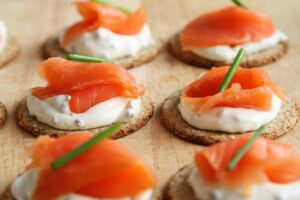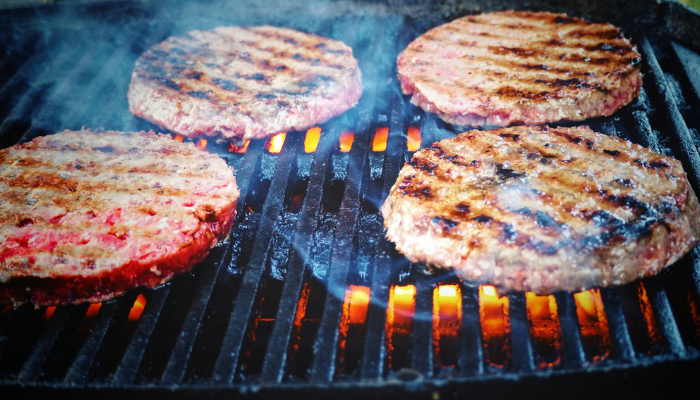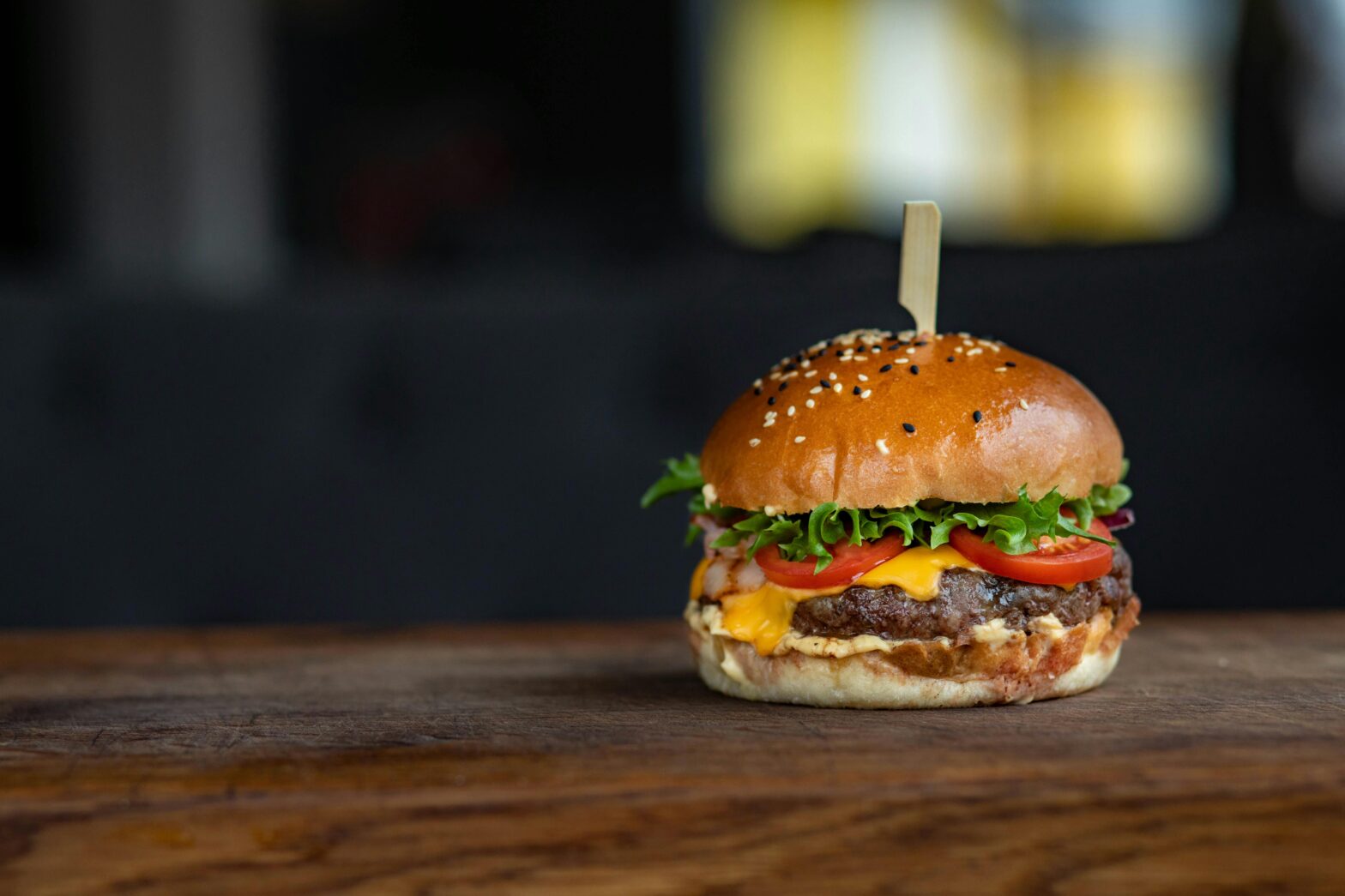Reaching your 30s and moving into your 40s is a pivotal moment in life.
You’re faced with a metabolism less forgiving than in your 20s, yet you’re not yet dealing with the drastic hormonal shifts of menopause.
There are increased personal, financial, and professional responsibilities, both physically and psychologically. But you’re also wiser than the previous decade.
So, how do you maintain a healthy weight, respect your body and feel confident in your skin?
As shown by inspiring figures like Serena Williams or Jennifer Aniston, maintaining fitness across any age is entirely achievable.
Join us on a weight loss journey that prioritises your mental and physical well-being, boosts your confidence, and focuses on self-improvement.
Let’s reclaim your health and vitality together.
Fitness.
In this article
Free guide to reverse your biological age

- Master the science of rejuvenation.
- Apply proven tips to turn back the clock.
- Transform your health with top longevity specialists.

What are the age-related challenges that come with ageing?
How do female and male body advice differ?
Have you figured out what your body truly needs to thrive?
Understanding your body, and recognising the unique challenges that come with ageing, can help pave the way for sustainable weight loss.
At Avea, we’ve created this 1-month weight loss challenge program, specifically for women in their 30s–40s.
This diet plan is none of the ordinary. Here, we are focusing on eating more, and not less.
After all, our taste buds are meant for more than just detecting spoilage. Let’s find out which diet plan can make losing weight sustainable and achievable.
Aim of the weight loss program
Before we proceed, we would like to clarify one thing. The aim of this weight loss program is not to get skinny; it’s all about getting strong and resilient. And that does not necessarily equate to ripped bodies.
If you’re aiming to achieve and maintain an optimal shape for your current stage of life, you’re in the right spot.
This weight loss program is aimed at boosting your longevity by letting go of unwanted fats and welcoming healthy muscles.
Such interventions have been linked to a reduced risk of chronic diseases like obesity, type 2 diabetes, cardiovascular diseases or even cancer. Increased muscle mass is also linked to an increased lifespan.
Our advice to you, starting here–shift your focus towards enhancing other aspects of your health instead of solely concentrating on your body weight or physical appearance.
Research indicates that those motivated to lose weight for health-related reasons, such as reducing disease risk or enhancing overall well-being, are more likely to achieve significant weight loss compared to those primarily motivated by appearance goals.
Regardless, most of us have asked ourselves this question at some point of our lives: ‘’Why am I not losing weight?’’
The current issue: Why is losing weight so hard?
Weight loss has long been a universal aspiration, echoing throughout human history (e.g. The Art of Living Young is a diet book written by Luigi Cornario, an Italian nobleman who lived during the Renaissance period).
Yet, losing weight after the 30s can be challenging for most of us, even in 2024. It requires the understanding of the root causes of this struggle, which involves the complex interplay of biological, psychological, and environmental factors.
Let’s understand why losing weight can be hard. P.s. it’s not your fault.
Being self-critical won’t help you lose weight or change your body size; in fact, it can hinder your efforts. Studies indicate that self-criticism can undermine weight management attempts.
If you’re struggling with self-acceptance and kindness towards your body, regardless of your weight, consider working with an experienced therapist for support.
- Your body changes
Of course, the first thing to consider is your biology (and physics, and chemistry). The trends may come later.
As you transition from your 30s to your 40s, losing weight might become more challenging because of the significant shifts that occur at the biological level. Below are a few examples:
- Your NAD+ and antioxidant levels decrease.
- Your mitochondrial health declines.
- Your basal metabolic rate (BMR) gets slower.

BMR represents the number of calories your body needs to perform basic life-sustaining functions like breathing and circulation.
As this rate slows down, your body burns fewer calories at rest, exacerbating weight gain unless dietary and activity adjustments are made.
Weight loss will necessitate creating a caloric deficit, wherein your energy expenditure exceeds your caloric intake.
These age-related changes contribute to an increased metabolic resistance, that makes losing weight harder than before.

Those who can adapt to their changing environment are more likely to thrive.
- Advice online is misleading
Let’s face it. Navigating the ocean of weight loss advice online can be frustrating. The huge volume of conflicting information often leads to more confusion than clarity.
Should you follow diet plan A or B? Does protein actually accelerate or decelerate ageing?
Should you listen to this famous influencer on TikTok or that bodybuilder with thousands of followers on Instagram?
- There’s a lack of female-focused research
Regrettably, the specific biological needs of women are often overlooked in scientific studies (or everywhere else). Most research historically is skewed towards men.
This gap in data can lead to generalised guidelines that may not fit your unique physiological profile, especially when you’re in your 30-40s.
These are the years when work, family, and health all jostle for attention, a struggle many in this age group can relate to.
- Do weight loss programs actually work?
Many of us worry about gaining back the weight we’ve lost. It’s a common fear when trying to lose weight—what if it all goes wrong?
This is a significant barrier that discourages many from even beginning their weight loss journey. There are many reasons why people end up regaining weight.
Maintaining weight loss lacks the immediate gratification of seeing the scale drop. Besides, lifestyle changes made during weight loss can be difficult to sustain long-term, especially if they’re overly restrictive.
Last, weight loss can increase hunger hormones and slow metabolism, making overeating easier and weight regain more likely.
How do we proceed?

There is no one-size-fit-all in weight management. You have to design your own plan, and we’ll help you do that.
Our program is designed not to spoon-feed a universal solution, but to provide you with the knowledge and tools to create a plan that resonates with your individual needs.
The remainder of this article will guide you in crafting a personalised approach to effectively manage your weight and health.
We’ll start by understanding how to tackle each issue that makes losing weight more difficult, and regaining it easier.
The puzzle: How do lose weight effectively?
Take a step back and look at the bigger picture. How did you get to this point?
This period requires an understanding of not just the biological differences, but also the distinct needs of your changing environment.
Whilst nutrition plays a significant role in your weight loss journey, and that will be our main focus with the diet plan, there are other crucial factors to consider at the same time.

- How stressed have you been lately?
- How often do you move your body?
- How well have you been sleeping?
- How’s your work life?
- When was the last time you stopped and took a few conscious breaths?
- How hydrated are you on a regular basis?
- How often do you listen to your inner voice?
These are questions you should answer before moving to the next section of the article.
It will help you pause and reflect, so you can assess the following in a more clear state of mind.
- Be in control of your stress levels
When you experience stress, your body releases cortisol–a hormone that plays a key role in regulating metabolism.
Elevated cortisol levels can lead to increased appetite and cravings, particularly for high-calorie foods. This can result in overeating and potential weight gain over time.
Chronic stress can also disrupt other hormones involved in appetite regulation, such as leptin and ghrelin, further contributing to difficulties in managing weight.
To successfully tackle stress, activating your body’s innate relaxation mechanism is essential.
Employing methods like deep breathing, visualisation, meditation, and yoga can prove beneficial.
Discover 8 science-proven ways to relieve stress.
- A lack of physical activity slows down progress
A sedentary lifestyle reduces energy expenditure, making weight loss even more challenging.
Physical activity preserves muscle mass and metabolic health, crucial for effective weight management.
And mind you, a lack of activity can worsen mental health, promoting emotional eating and hindering weight loss. It becomes a vicious cycle.
Finding an activity you enjoy is essential for increasing your activity levels. Muscle mass naturally declines with age, starting in your 30s.
To build and maintain muscle mass and metabolism, engage in regular exercise. Instead of focusing solely on calorie burn, choose activities you genuinely enjoy and can sustain long-term.
Consider options like Zumba, hiking, biking, walking, Pilates, swimming, and dancing—activities that we bet you’ll find pleasurable at any age.
Discover the top longevity exercises advised by experts.
- Your genes play a role
Genetic factors can significantly impact weight management outcomes by influencing various aspects of metabolism and fat storage.
Certain gene variants can affect how efficiently your body processes and stores nutrients, leading to differences in energy expenditure and fat accumulation.
Genetic predispositions may also increase the risk of developing medical conditions such as obesity, diabetes, or hormonal imbalances, which can further complicate weight loss efforts.
Understanding your genetic profile can provide valuable insights into your unique metabolic tendencies and help tailor personalised strategies for achieving and maintaining a healthy weight.
- Environmental factors come into play
Our habits are influenced by cultural norms, social expectations, and financial resources. In fact, though unnoticed, they severely impact our lifestyle and health decisions.
In wealthier regions, access to nutritious foods, gym facilities, and outdoor spaces is more common, promoting healthier lifestyles.
Conversely, in lower-income areas, there are limited access to affordable healthy foods and recreational spaces. This is usually coupled with higher stress levels and time constraints due to higher workload or caregiving responsibilities.
Your environment can hinder efforts to adopt healthier habits and maintain a healthy weight.
Despite these challenges, you can still make positive changes. Focus on what you have and make the most of it.
Building good daily habits is key to effective weight loss. It’s not about one single action, but how you approach your entire day and night that will help you lose weight overtime.
- Unhealthy dietary habits need to go
Western dietary habits, often high in processed foods and low in nutrients, contribute to weight issues. And this is a fact.
The spread of these habits globally, driven by capitalism and globalisation, exacerbates the challenge of maintaining a healthy weight worldwide.
Processed foods are often packed with sugar, unhealthy fats, and additives, leading to excess calorie intake and weight gain.

Reducing sugar intake is a beneficial step toward weight loss and lowering the risk of conditions like heart disease and metabolic syndrome.
Foods and drinks such as sugary cereals, sweetened coffee, soda, candy, and baked goods contain high levels of added sugar with minimal nutritional benefits.
Gradually cut back on these items and use sweeteners like table sugar, raw sugar, honey, and agave less frequently or in smaller amounts.
Prioritising whole, nutrient-rich foods supports weight management by keeping you full and stabilising blood sugar levels.
Now, let’s talk about the foods you should be eating for a proper weight loss. We’ll provide you with
Nutrition recommendation for your 30s–40s
To develop a sustainable weight loss plan that suits your needs, it’s important to avoid restrictive diets. Research shows that such diets and restrained eating don’t support long-term weight maintenance and can harm physical and mental health.

A healthy dietary pattern should be maintainable for life, whether you’re on holiday, enjoying a holiday meal, or dining out with friends.
If you frequently feel the need to “cheat” or “go off” your plan to eat foods you enjoy, it indicates the diet is overly restrictive and unsustainable. All foods can fit into a balanced, long-term eating pattern for a healthy lifestyle.
Here are the best foods to grab from your local supermarket!
| Body changes | Nutrients you need | Best foods to eat |
|---|---|---|
| Decrease in muscle mass and strength | Protein, Vitamin B6 or B complex, creatine, Omega-3 | Seafood, eggs, beans, vegetables, whole grains, white meats, protein powders and supplements |
| Decrease in bone density and strength | Calcium, Vitamin D, Vitamin K2 Collagen, protein | Dairy products like milk and yoghurt, dark green, leafy veggies like spinach and broccoli, tofu, nuts, and supplements |
| Oxidative damage in the body | Antioxidants, Omega-3, Vitamin B12, folic acid | Beans, blueberries, green and black tea, supplements |
| Slower metabolism | Proteins, minerals (Iron, Selenium, etc), B complex | Fish, meat, eggs, legumes, nuts, and seeds. |
Avea recipes
Here are some of our healthy recipes. They are designed to be nutritious and satisfying, showcasing that a balanced diet can be both enjoyable and diverse.
- Omnivore diet ideas
- Vegetarian diet ideas
These portions are based on single servings. If you’re serving others, please adjust accordingly. And remember, healthy eating doesn’t have to be dull—we’ve included some delicious desserts to prove it!
- Dessert ideas
Start loving to cook for yourself. That’s the real medicine–you’re nourishing your cells with the nutrients they need.
6. Stop eating out as often
Numerous studies have linked cooking more meals at home to a healthier body weight and improved diet quality.

A study of 11,396 people aged 29–64 found that those who ate home-cooked meals more than 5x per week were 24% less likely to have excess body fat compared to those who ate fewer than 3 home-cooked meals per week.
But listen, you don’t need to cook every meal at home or make gourmet dishes.
Meal planning can help you prepare and have everything you need. If you’re currently cooking only one or two meals a week, try to gradually increase this number. This can help you lose weight, improve your diet quality, and save money.
The solution: Eat more to lose more.
Build your 1-month diet plan
Week 1: Initial assessment and adjustment
Start with a baseline measurement of your weight, body composition, and dietary habits. Focus on understanding portion sizes and incorporating more vegetables and whole grains. Remember, your plate should be half covered with your greens and veggies, followed by proteins, then carbohydrates.
Sample meal plan:
- Breakfast: Greek yogurt with berries and nuts
- Lunch: Quinoa salad with mixed vegetables and lean protein
- Dinner: Grilled chicken with steamed broccoli and sweet potatoes
- Snacks: Fresh fruit, nuts, and seeds
Week 2: Incorporating more home-cooked meals
Gradually increase the number of home-cooked meals. Use meal planning to simplify grocery shopping and preparation. This includes not walking in aisles which will trigger you into buying unnecessary and unhealthy foods. You want to buy what’s on your list, and your list consists of delicious, wholesome foods.
Sample meal plan:
- Breakfast: Omelette with veggies
- Lunch: Lentil soup with whole grain bread
- Dinner: Baked salmon with roasted Brussels sprouts and quinoa
- Snacks: Hummus with carrot sticks, apple slices with almond butter
Week 3: Fine-tuning based on feedback
Adjust the diet based on what’s working and what isn’t. Experiment with new recipes and include more diverse foods.
Sample meal plan:
- Breakfast: Smoothie with spinach, banana, protein powder, and almond milk
- Lunch: Turkey and avocado wrap with a side salad
- Dinner: Stir-fried tofu with mixed vegetables and brown rice
- Snacks: Cottage cheese with pineapple, mixed nuts
Week 4: Evaluation and planning for next month
Review your progress and make necessary adjustments. Set new goals and create a plan for the next month.
Sample meal plan:
- Breakfast: Scrambled eggs with spinach and whole grain toast
- Lunch: Chickpea and vegetable stew
- Dinner: Grilled shrimp with zucchini noodles and pesto
- Snacks: Greek yogurt with honey, trail mix
Key nutrients to focus on
- Protein: Essential for muscle maintenance and growth. Sources include seafood, eggs, beans, whole grains, white meats, and protein powders.
- Healthy fats: Important for overall health. Sources include avocados, nuts, seeds, and olive oil.
- Fibre: Helps digestion and helps maintain a healthy weight. Sources include fruits, vegetables, whole grains, and legumes.
- Vitamins and minerals: Ensure adequate intake of calcium, vitamin D, antioxidants, and other essential nutrients.
How to maintain sustainable weight loss
Losing weight is challenging, but maintaining that weight loss is the real test.
Studies show that people on very low-calorie diets regain between 26% and 121% of their lost weight within 5 years.
Those in behavioural weight management programs regain 30-35% after one year.
Even with medications like Wegovy, about two-thirds of the lost weight returns within a year of stopping the drug.
Weight regain occurs for several reasons. But, there are evidence-backed strategies to prevent weight regain:
- Be flexible
Understand that maintaining a healthy weight requires lifelong management. Avoid rigid expectations and don’t feel guilty about slip-ups. Plan to get back on track quickly.
- Plan for disruptions
Anticipate disruptions like holidays and parties. Prepare by losing a few extra pounds beforehand or bringing healthier options to events.
- Be proud of your achievements
Recognise that weight naturally fluctuates. Focus on achieving your goals and be proud of your efforts, regardless of the scale number.
- Make habits
Forming healthy habits can help maintain weight loss since habits are less influenced by changes in motivation.
- Go outside
Spend more time in nature, whether for a walk or simply to enjoy the fresh air. Research shows that outdoor activities can boost physical activity levels and reduce sedentary time.
- Stay hydrated
Hydration is crucial for weight maintenance. A study of 358 individuals aged 18-39 found that higher fluid intake correlates with a healthier body composition, including lower body fat and smaller waist circumference. Hydration needs vary, but a good indicator is light straw-coloured urine.
- Think about the future
While short-term goals are normal, consider your long-term health. How will improving your nutrition, increasing activity, and managing weight in your 30s or your 40s benefit your future self?
Make dietary and lifestyle choices based on their long-term health impacts rather than just immediate weight loss results.
- Love yourself
Loving your body and feeling confident can be challenging, and that’s OK. Learning to respect your body at any weight fosters self-acceptance and supports successful weight management.
















